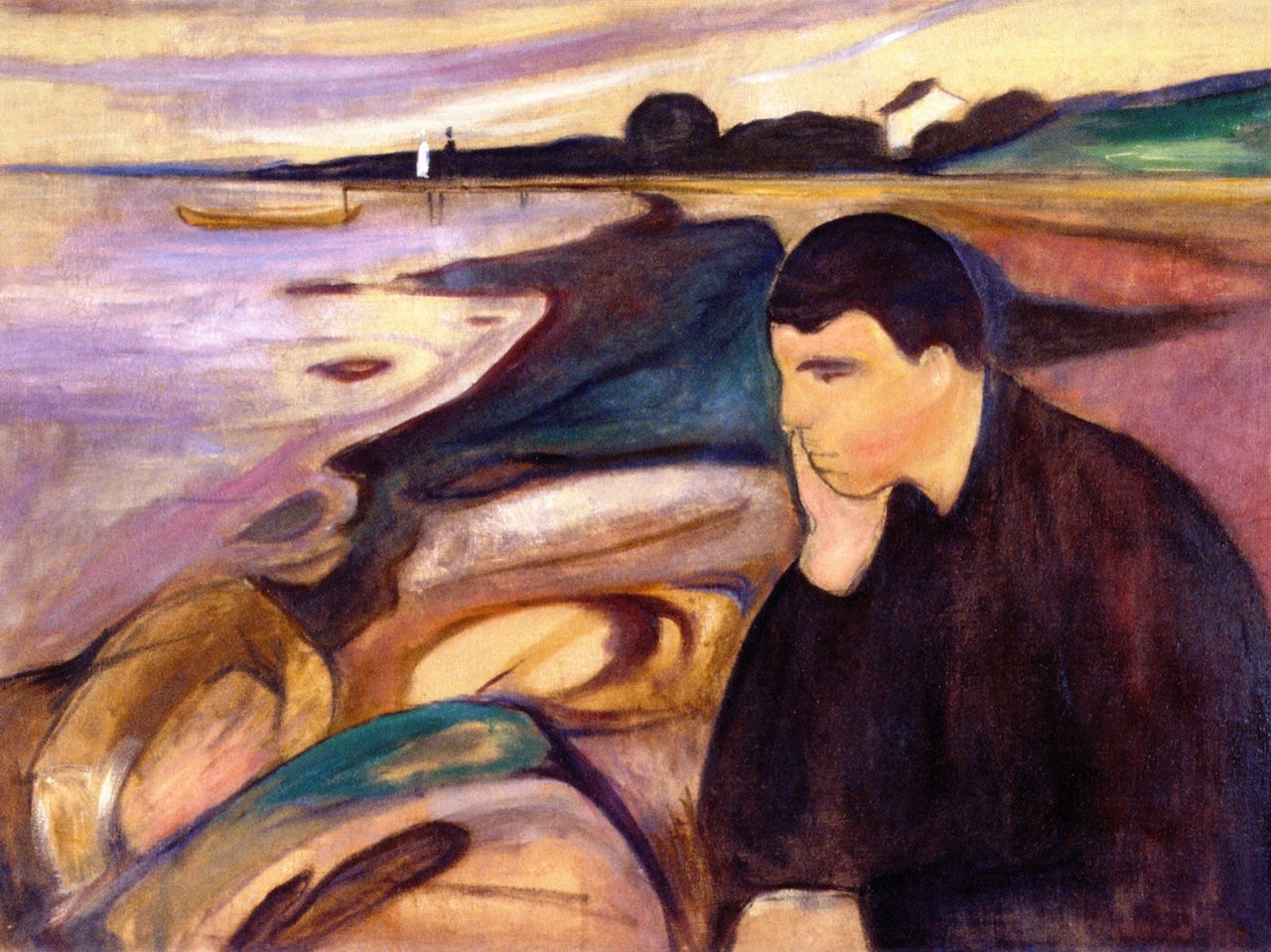Have you felt it recently? That sensation of despair mixed with cynicism and powerlessness coursing through you?
That’s Weltschmerz.
Literally translated as “world-pain,” Weltschmerz follows in the German language’s long tradition of forming apt and amusing compound words.
Schadenfreude (harm-joy) is the famous example. But we also have lesser-known concoctions like Daseinsberechtigung (existence-justification) and Backpfeifengesicht (cheek-whistle-face), which is what you’d call a face you want to slap so hard it produces the shrill sound of moving air.
While each of these terms has gained heightened relevance in the context of recent events, none captures the vibe of the times quite like Weltschmerz.
In 18th-century German Romanticism, where the term originated as a literary concept, Weltschmerz reflected one’s sentimental pessimism in light of the world's imperfections, often expressed through art, literature, and philosophy. Today, it reflects a similar world-weary sadness but is commonly expressed by laying down and thinking, Jesus, get me off this rock.
Everybody can sense that something is different now. We seem to have arrived at a period of prolonged inhumanity. A hell world, if you will. And yet, on the whole, our species has grown less violent over time. So why does the current moment carry so much disillusionment?
One explanation, according to Steven Pinker, is that our ethical expectations are progressing faster than the actual changes occurring in the world, which means we’re constantly affronted by things that wouldn’t have upset us in the past. Scant consolation to the Medieval peasants dismembered for adultery. But also, the root of our Weltschmerz is more literal: We’re constantly affronted by things in general. There may be less violence in the world but we’re seeing more of it than ever.
It goes without saying that atrocities are woven into the fabric of human history. But that anyone outside of the immediate area would have known or cared about them is a very recent phenomenon. Global, round-the-clock war gawking is especially contemporary—roughly since 1990, say, when cable news networks turned the Gulf War into a 24-hour reality television, scripted and everything.
In a collection of essays published near the end of that conflict, the French postmodernist philosopher and cultural critic Jean Baudrillard argues that the war did not take place in the traditional sense of a war with a clear beginning, middle, and end. Rather, he saw it as a meticulously orchestrated media event where reality was obscured and replaced by hyperreal representations distorting the true nature of the conflict.
What has evolved since then is not just the obfuscation of reality but its utter fragmentation. At no other time have so many narratives worked to erode our idealism. The advent of social media and mobile phones has amplified our inclination to feel problems rather than think about them. Weltschmerz is the natural psychological response to holding all the world’s awfulness in the palm of your hand.
So what to do? Humanity will never fail to disappoint us, and we’ve only just entered the age of information extremism. As for things getting less violent—hardly. As the world's gravest mass-killing event, the one we’re waging on our planet, intensifies, Weltschmerz will continue to mutate from its origin as an artful sort of melancholy into something darker and more despairing.
One option is to accept that there will always be ways in which the world falls short of our expectations. That’s the healthy type of Weltschmerz, an inherent condition of the soul that reminds us of our shared humanity and the obligation to strive for a better world even in the face of its shortcomings. For now, I’m going to remind myself that millions of small mercies are also happening in the world, often unreported. Then I’m going to go lie down.






When I was working in journalism, at one point, it became a physical pain, all day, everyday for years. I thought I was sick. And I was too sick that I left the profession. I went to the mountain, rarely have internet, and climb and walk everyday. I then lived by the sea with little internet. Suddenly I had no pain left, no anger, no sadness, no profound pain in my heart. I get what you wrote in the article. the whole awfulness of the world in your palms. I managed to get rid of it and get back to it in my control system to be able to work in my profession and not to be harmed by it.
Many people practicing meditation asks students to "quiet your mind". I think I did it, by not having a connected phone. And things wind down on its own. Thank you for your article.
The whole world needs more "small mercies".
Be kind. Do small things with great love.